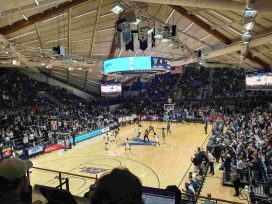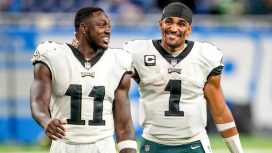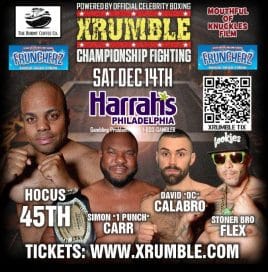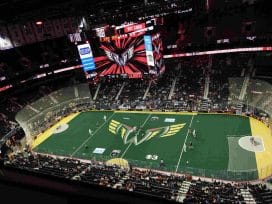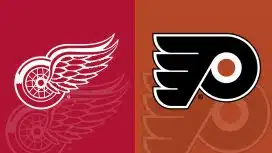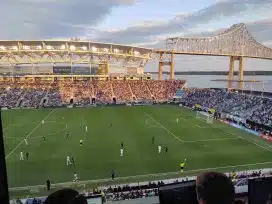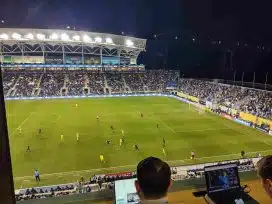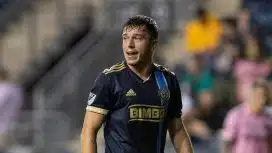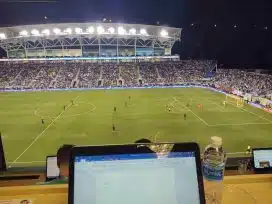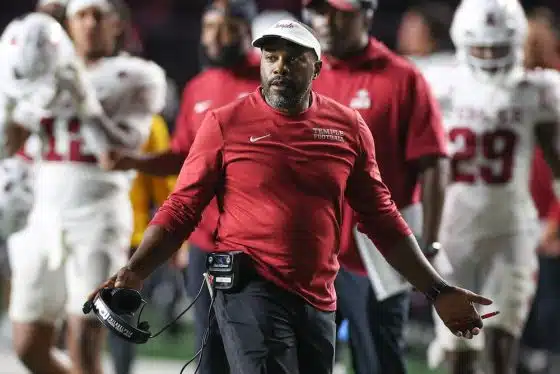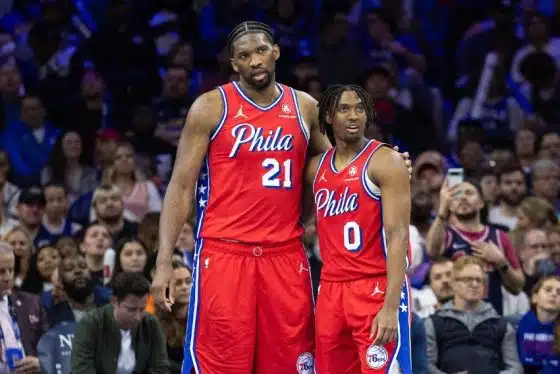Phillies
Top 25 Players to Ever Play a Game for the Phillies: No. 7, Robin Roberts
By Matt Albertson, Historical Columnist
Command, speed and longevity describe the 19-year career of Robin Roberts, who played with the Phillies for 14 seasons between 1948 and 1961. Hall of Famers marveled at Roberts' talent. His "fastball seemed to skid across the strike zone as though it were on a sheet of ice," said Red Schoendienst. Ralph Kiner said that his fastball would rise around six or eight inches through the strike zone, meaning that Roberts threw with such above average-speed compared to his peers that the ball didn't drop as much between its release and endpoint at home plate. Ernie Banks thought that he threw harder than the legendary Bob Gibson. Not bad.
Roberts was born to European immigrants in 1921 and his mother later noted that he never had a ball out of his hand. He hated working on the family farm and did whatever he could to play baseball. Growing up in Illinois, Roberts grew up a Cubs fan. When he was in the eighth grade, his path crossed with a former Phillies legend – Grover Cleveland Alexander, who lived in Springfield at the time – at a sports banquet near his school. The two pitchers would be tied years later when Roberts was with the Phillies. Roberts was the club's first 20-game winner since "Old Pete" won 30 for the club in 1917. In 1958, Roberts won his 191st game with the team, which broke Alexander's record of 190 wins (Roberts eventually won 234 games with the Phillies). Lastly, Roberts was elected to the Hall of Fame in 1976, the first Phillie since Alexander was elected to the Hall as part of the museum's third class in 1938.
Major league scouts began to notice Roberts after he pitched two no-hitters for Michigan State University and the Twin City Trojans, a semi-pro team. Phillies scout Chuck Ward said "to get one player like Roberts you look at 1,000 kids, and sometimes it seems like 10,000." The Phillies were impressed with his mental and physical talent, and after working him out at Wrigley Field in Chicago, offered Roberts $10,000. Roberts hesitated because he wanted to return to Michigan State to finish his degree but the Phillies increased their offer to $15,000, and after a third workout, offered $25,000. Roberts agreed and bought his parents a house.
Roberts showed up to 1948 Spring Training incredibly late because he finished his degree at Michigan State. Soon after his arrival, he was injured. Distraught, he walked to the field behind an unaware owner Bob Carpenter, who said "Well, it looks like I blew another $25,000." Veteran coach Cy Perkins noticed Roberts' demeanor and encouraged the young hurler, saying that once they saw him pitch, they wouldn't be on him anymore. A year later, Perkins – a former Philadelphia Athletic – said Roberts was one of the best pitchers he'd seen along with Walter Johnson, Lefty Grove, Herb Pennock and Grover Cleveland Alexander. Perkins was let go after the 1954 season, but his assessment was pretty accurate because Roberts won 286 games and was elected to the Hall of Fame.
During that Hall of Fame career, Roberts helped lead a young group to the 1950 World Series. He led the league in wins four times, in innings pitched five times, and strikeouts twice.
After the 1961 season, the Yankees purchased Roberts' contract from the Phillies, but was let go in May 1962. Yankee manager Ralph Houk said he didn't need a 35-year-old reliever so they let him go. Roberts signed with Baltimore and resurrected his career. In 1965, he roomed with 19-year-old pitcher Jim Palmer. After a game in Los Angeles, Palmer asked Roberts why he didn't offer any pitching advice to which Roberts responded, "throw the hell out of the ball and go to sleep." Palmer later said in an interview that it was the best advice he ever received. Later, when he was with the Cubs, Roberts mentored a young Fergie Jenkins.
Career Accomplishments
Robin Roberts' Hall of Fame plaque (Matt Albertson/Sports Talk Philly)
- 1976 Hall of Fame inductee
- Seven-time All-Star
- National League wins leader 1952-1955
- Won 20 or more games in a season six times
- Led league in innings pitched five times
- 286 career wins
*Awards were not factored into the formula
Career-Defining Moment
Robin Roberts was a workhorse pitcher of a bygone era. Between August 1952 and June 1963, Roberts threw 28 straight complete games, nearly a full year without being relieved by the bullpen. And it wasn't simply poor management. In 1952, Roberts went 28-7 with a 2.59 ERA and in 1953 he was 23-16 with a 2.97 ERA.
Between 1952 and 1956, Roberts completed an astounding 140 complete games, leading the league in each of those seasons. In total, Roberts threw 305 complete games in a 19-year career, including 45 shutouts.
Reasoning for ranking
Roberts scored 63 points in our formula. He totaled 83.1 WAR, averaging 4.37 WAR over his 19 seasons. He had 17 seasons of 2+ WAR and six seasons at 5+ WAR, and four seasons at 8+ WAR, totaling 55 points. His 286 wins ranks 28th all-time, his 1.17 WHIP 92nd all-time, and his 1.73 bb/9 45th all-time, totaling 10 points.
Roberts scored eight points on our subjective importance scale because he was the Phillies' best or second best player for the better part of a decade, helping to lead the club to the 1950 National League pennant.
Explanation of scientific formula
The player rankings formula combines both traditional and advanced statistics/metrics and assigns a point total to each category.
Previous Players
- No. 25 – Ryan Howard
- No. 24 – Roy Oswalt
- No. 23 – Kenny Lofton
- No. 22 – Jimmy Rollins
- No. 21 – Cole Hamels
- No. 20 - Cliff Lee
- No. 19 – Tony Perez
- No. 18 – Bobby Abreu
- No. 17 – Scott Rolen
- No. 16 – Richie Ashburn
- No. 15 – Chase Utley
- No. 14 – Ryne Sandberg
- No. 13 – Dick Allen
- No. 12 – Jim Bunning
- No. 11 – Fergie Jenkins
- No. 10 – Jim Thome
- No. 9 – Curt Schilling
- No. 8 – Roy Halladay

